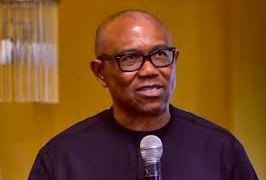Photo by Seiji Seiji on Unsplash
By Agbeze Ireke Kalu Onuma, AI-KO
Let me begin with a confession: my mornings are not Instagram-worthy. There’s no golden-hour yoga pose, no meticulously arranged avocado toast, no serene timelapse of a 5 a.m. journaling session. Instead, my waking hours are a struggle between intention and imperfection, a daily pilgrimage toward clarity that often stumbles over exhaustion, distraction, or the occasional snooze button. Yet, in this sacred chaos, I’ve discovered a rhythm that grounds me – a blend of spirituality, silence, and surrender.
The Struggle to Begin: A Battle Against Instability
Like many, I’ve wrestled with the myth of the “perfect morning.” Social media peddles images of CEOs and gurus conquering dawn with military precision, but my reality is messier. Some days, I rise before sunrise, energized; others, I drag myself upright long after the sun has claimed the sky. Marcus Aurelius, the Stoic philosopher, once wrote, “When you arise in the morning, think of what a precious privilege it is to be alive – to breathe, to think, to enjoy, to love.” His words comfort me. My privilege isn’t in perfection, but in the simple act of beginning – again and again.
Kneeling Before Dawn: Prayer as an Anchor
No matter when I wake, my day starts with prayers. This ritual isn’t about piety; it’s about posture. Physically lowering myself shifts my mindset from hurry to humility. I borrow from the ancient practice of “lectio divina” – sacred reading – beginning with the YouVersion Bible app. The app’s “daily streak” feature gamifies consistency, a modern twist on an age-old discipline. Today’s verse, “Praise the Lord, my soul, and forget not all his benefits” (Psalm 103:2), lands like a quiet anthem. It pairs perfectly with the line I often return to: “Let the morning bring me word of your unfailing love, for I have put my trust in you” (Psalm 143:8). Together, these verses frame my mornings not as a checklist, but as a call to remembrance – to dwell on God’s faithfulness before I dwell on my flaws.
Psalm 103:2, in particular, anchors me. To “forget not all his benefits” is to reject the tyranny of scarcity, a lesson I carry from my Nigerian upbringing, where gratitude was a survival skill. My grandmother would list blessings aloud at dawn: “Two hands to work, one mouth to eat, and a heart that still beats.” Like her, I use this verse to inventory grace: breath, purpose, another day to try again.
I pair Scripture with devotional giants like “My Utmost for His Highest” by Oswald Chambers and Nicky and Pippa Gumbel’s “The Bible in One Year”, which I’m currently reading. The Gumbels’ work, a companion to their iconic devotional plan, weaves scholarly insight with pastoral warmth, much like my grandmother’s storytelling. Nicky Gumbel once wrote, “Gratitude is the heartbeat of a life surrendered to God,” a truth Psalm 103:2 echoes. Their reflections often nudge me to see the Bible not as a static text, but as a conversation – one that continues as I brew my tea and scribble fragmented prayers.
Chambers warned, “The greatest competitor of devotion to Jesus is service for Him,” a caution against mistaking busyness for depth. Some days, my prayers are focused; others, they’re fragmented whispers. Yet, as theologian Eugene Peterson noted, prayer is “answering speech,” a dialogue that persists even when words falter. Whether through Psalm 103’s call to praise, Psalm 143’s plea for reassurance, or the Gumbels’ gentle guidance, the act of opening the app – and my heart – becomes a pact: to meet the day not with my strength, but with borrowed holiness.
The Alchemy of Silence and Tea
After prayer, I brew tea – a ritual borrowed from my Soviet Union sujourn, where loose-leaf chai simmers in a flask, its aroma a bridge between past and present. Silence follows. The Japanese concept of “ma” – negative space – teaches that emptiness isn’t absence but potential. In those quiet moments, I “roam about in my mind,” as I have described severally in my diary entries, jotting thoughts in my online journal. Virginia Woolf once wrote, “Every secret of a writer’s soul… is written large in their work.” My morning pages are less about eloquence and more about excavation, unearthing fears and hopes before the world intrudes.
Sundays: A Different Kind of Sacred
Sundays defy routine; they’re liturgy in motion. Up at 5 a.m., I review Sunday School manuals, preparing to teach with the same care my earl Teachers did in our Okigwe Road church decades ago. By 7:30 a.m., I’m en route to worship, a practice mirrored in the lives of spiritual giants like C.S. Lewis, who wrote, “Church is not the auditorium for the concert of the righteous, but the hospital for the sick.” Sundays remind me that rituals are communal, not just personal – a thread connecting me to a lineage of faith.
The Grace of Flexibility
Some mornings, life intervenes. A fever, a missed alarm, a soul-wearying week. On those days, I channel Anne Lamott’s wisdom: “Almost everything will work again if you unplug it for a few minutes, including you.” My flask of tea becomes a lifeline; a five-minute meditation substitutes for an hour. I’ve learned that rigidity breeds guilt, but flexibility nurtures resilience. As Buddhist monk Thich Nhat Hanh taught, “Waking up this morning, I smile. Twenty-four brand new hours are before me. I vow to live fully in each moment.”
Conclusion: The Beauty of Unfinished Mornings
My mornings are a mosaic – broken pieces of intention, faith, and cups of Tea. They defy Pinterest boards but align with the wisdom of mystics and misfits across history. Poet Mary Oliver asked, “Tell me, what is it you plan to do with your one wild and precious life?” For me, the answer begins in the quiet chaos of dawn: to kneel, to read, to sip, to fail, and to begin again.
In the end, the first hour isn’t about control. It’s about showing up – however imperfectly – and trusting that the day will hold both the sacred and the stumble. After all, as Leonard Cohen sang, “There is a crack in everything. That’s how the light gets in.”
Follow us on all social media platforms @dailyquery for news around the globe.



























